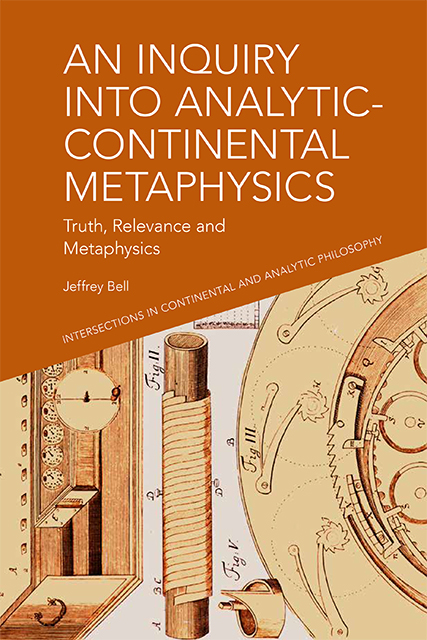Book contents
- Frontmatter
- List of Contents
- Acknowledgements
- Introduction
- §1 Problem of the New
- §2 Problem of Relations
- §3 Problem of Emergence
- §4 Problem of One and Many
- §5 Plato and the Third Man Argument
- §6 Bradley and the Problem of Relations
- §7 Moore, Russell and the Birth of Analytic Philosophy
- §8 Russell and Deleuze on Leibniz
- §9 On Problematic Fields
- §10 Kant and Problematic Ideas
- §11 Armstrong and Lewis on the Problem of One and Many
- 12 Determinables and Determinates
- 13 The Limits of Representational Thought
- 14 Learning from a Cup of Coffee
- 15 Carnap and the Fate of Metaphysics
- 16 Truth and Relevance
- Conclusion
- Bibliography
- Index
Introduction
Published online by Cambridge University Press: 25 October 2023
- Frontmatter
- List of Contents
- Acknowledgements
- Introduction
- §1 Problem of the New
- §2 Problem of Relations
- §3 Problem of Emergence
- §4 Problem of One and Many
- §5 Plato and the Third Man Argument
- §6 Bradley and the Problem of Relations
- §7 Moore, Russell and the Birth of Analytic Philosophy
- §8 Russell and Deleuze on Leibniz
- §9 On Problematic Fields
- §10 Kant and Problematic Ideas
- §11 Armstrong and Lewis on the Problem of One and Many
- 12 Determinables and Determinates
- 13 The Limits of Representational Thought
- 14 Learning from a Cup of Coffee
- 15 Carnap and the Fate of Metaphysics
- 16 Truth and Relevance
- Conclusion
- Bibliography
- Index
Summary
In his Prolegomena to Any Future Metaphysics, Immanuel Kant raises an important question about the status of philosophy: despite its long, illustrious history, why cannot philosophy, ‘as other sciences, attain universal and lasting acclaim?’ (Kant 2014, 5). Almost 130 years later, and after a century of impressive developments in the sciences, Bertrand Russell reaffirms Kant's observation, noting that ‘[i]f you ask a mathematician, a mineralogist, a historian, or any other man of learning, what definite body of truths has been ascertained by his science, his answer will last as long as you are willing to listen’. If you ask the same question of a philosopher, however, ‘he will, if he is candid, have to confess that his study has not achieved positive results such as have been achieved by other sciences’ (Russell 2001, 90). More recently, things have gotten arguably worse for philosophers, with some, such as Daniel Dennett, directing his fire at the continental tradition and blaming them for contributing to the cultural climate that allowed someone like Donald Trump to be elected as President of the United States. ‘I think what the postmodernists did’, Dennett claims, ‘was truly evil. They are responsible for the intellectual fad that made it respectable to be cynical about truth and facts.’ In taking up the theme of truth and relevance, as this book will, and by drawing from the work of Gilles Deleuze in the process (a philosopher who could be grouped among the postmodern philosophers), it may appear that I am simply adding yet another work to the list of those that not only do not contribute to the ‘definite body of truths’, as Russell aspired to do, but even worse contribute to the contemporary cynicism ‘about truth and facts’ by watering down truth with discussions of relevance.
In discussing truth and relevance, however, the plan for this work is not to diminish the status of truth, or to provide support and comfort for post-truth relativism. Rather, we will begin with Kant and Russell, and in particular their recognition that philosophy pales by comparison to the sciences when it comes to attaining a ‘definite body of truths’.
- Type
- Chapter
- Information
- An Inquiry into Analytic-Continental MetaphysicsTruth, Relevance and Metaphysics, pp. 1 - 14Publisher: Edinburgh University PressPrint publication year: 2022

